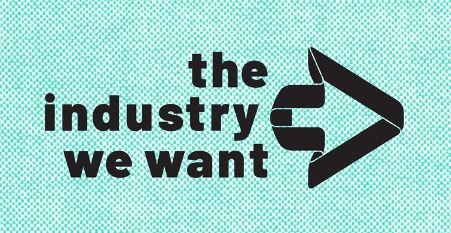
Dear Fashion: Let’s Step Up and Get Aligned
In a recent opinion editorial with WWD, CEO Colin Browne argues fashion needs to take more serious and coordinated action on sustainability. Read the highlights here!

San Francisco, Amsterdam, Hong Kong – October 3, 2022 – The Sustainable Apparel Coalition (SAC), a non-profit organization that brings together around half of the apparel and footwear industry to enable positive social and environmental impact at scale, is collaborating with The Industry We Want (TIWW) on the second cycle of the purchasing practices metric, powered by the Better Buying Institute Partnership Index™ survey. The survey opens from October 3rd – October 31st, 2022 and is calling on manufacturers in the apparel sector to rate their brand partners’ purchasing practices.
Through this annual temperature check, the multi-stakeholder initiative The Industry We Want, in partnership with the Better Buying Institute, aims to collect data to help accelerate change in the garment and footwear industry. The findings will be presented at the OECD Forum on Due Diligence in the Garment and Footwear Sector in February 2023.
The Partnership Index™ survey
The Partnership Index™ survey provides a consistent way to measure the impact of brands’ purchasing practices on production and creates a space for meaningful, two-way dialogue on the topic. The more data collected each cycle, the more robust the industry score and the tracking of change across the industry will be. This allows all actors to hold themselves accountable and inspire progress at large.
“It’s our turn to raise our voices and share experiences as manufacturers to transform the industry. Take 10 minutes to fill out the partnership survey and save months of effort. Give a chance to the brands to evolve with our feedback,” Bulent Alkanli, Managing Director of Meta Sourcing.
The Industry We Want is now encouraging manufacturers in the apparel sector to have their say. Brands, retailers and other stakeholders are invited to share the survey with manufacturers. The survey is an anonymous questionnaire that consists of 15 questions and will take 5 – 10 minutes to fill in for each brand partner.
The information gained from the aggregated results will provide the industry with direct feedback from global suppliers on the state of purchasing practices. This will generate valuable insights that can be used to build better relationships between brands and suppliers, while also mapping what processes need to improve in the sector.
The findings will be aggregated and presented at the OECD Forum, in connection to critical developments since last year’s cycle. Further, the results will inform the purchasing practices metric on www.theindustrywewant.com, alongside wages and GHG emissions, and serve as a basis for a series of supplier seminars in the coming year.
“The survey gives suppliers the safe space to anonymously share feedback. This gives brands and retailers insights to act upon. They can start to find out how problems are occurring and work with suppliers to resolve them,” Leonie Barrie-Abraham, Vice President of Business Development at Better Buying.
Results 2021: The industry needs equal, long-term partnerships
Throughout its first cycle in October 2021, the Partnership Index survey received over 500 responses from suppliers in the garment- and footwear industry.
The first findings of the Index make it clear how much pressure suppliers are facing. Key findings show that brands are failing to provide suppliers with enough time, visibility, or fair financial practices and they do not seek suppliers’ ideas for product and process innovation.
The four most highly rated behaviours are communication, financial practices, the provision of visibility necessary to business operations and buyers doing their part to improve environmental performance and practices in the supply chain.
“BAM decided to share the survey with suppliers last year. We believe input & feedback from suppliers as well as action from brands is absolutely crucial to driving the system change this industry needs to see, and we intend to share the survey with suppliers again this year. The anonymous feedback we received highlighted issues that we’ve since begun to investigate further through follow up surveys and conversations with suppliers; the results of which will inform future strategies,” Merryn Chillcot, Sustainability & Technical Manager at BAM Bamboo Clothing.
According to the responses:
The percentage of Detractors are subtracted from the percentage of True Partners to calculate the company’s overall BBPI score, using a range of -100 to +100. The Industry We Want’s purchasing practices metric score for 2021 is 39.
Fair Wear and the Ethical Trading Initiative (ETI) were the first Multi-Stakeholder Initiatives to publicly disclose their full reports in an effort to increase commercial transparency in the sector. The data provided through the reports supports Fair Wear and ETI in their work on purchasing practices with their respective members.
The Industry We Want launched the drivers for change industry dashboard earlier this year, with the aim of measuring the garment and footwear industry’s progress on the wage gap, purchasing practices and GHG emissions.
As a strategic partner and lead on the direction of the environmental pillar of TIWW, the SAC works in partnership with Fair Wear and Ethical Trading Initiative to facilitate collective action across the industry toward a 45% greenhouse (GHG) reduction by 2030.
The SAC also coordinates with the Apparel Impact institute to measure yearly the GHG emissions for the industry at large. The partnership falls under TIWW and is geared towards ensuring dignity for workers, thriving businesses along the supply chain, and a positive impact on the planet.
— ENDS —
About the Sustainable Apparel Coalition:
The Sustainable Apparel Coalition (SAC) is an independent and impact-creating organization that aims to lead the industry toward a shared vision of sustainability based upon a joint approach for measuring, evaluating, and improving performance.
As a non-profit organization, it has members from across the apparel, footwear and textile sector, but exists independently outside any one company so that it can drive progress. The SAC’s collective action efforts bring more than 280 global brands, retailers, manufacturers, NGOs, academics and industry associations together. They represent about half of the apparel and footwear industry along the whole supply chain – from sustainability pioneers to organizations just getting started.
Before the SAC existed, companies worked in a siloed way, using their own programmes and measurements that lacked standardization and an ability to drive collective action. In 2009, Walmart and Patagonia identified this as a serious problem. Joining forces, they brought together peers and competitors from across the sector, to develop a universal approach to measuring sustainability performance and founded The Sustainable Apparel Coalition.
About The Industry We Want
The Industry We Want (TIWW) is a multi-stakeholder initiative launched to drive industry-wide progress across the garment and footwear sector. TIWW collects and disseminates examples of successful and scalable solutions to amplify their reach and effectiveness. They connect knowledgeable, passionate and impact-focused stakeholders to measure progress, enhance collaboration, drive change, inform policy and hold ourselves accountable. They focus on the inclusive processes emphasising the interconnectedness of environmental, social and commercial practices to accelerate transformation.
For further information and interviews, please contact:
Beatrice Thumi
SAC, Public Relations Analyst
Cascale is proud to announce the election of a new board member and the re-election of two incumbent board members to serve on the Cascale Board of Directors.
Cascale’s ongoing event series amplifies the voices of manufacturers around the globe; event to be held in collaboration with ISPO Shanghai.
In pursuit of expanded pathways for sustainability impact, the global nonprofit alliance Cascale (formerly SAC) appoints Colin Browne as chief executive officer.